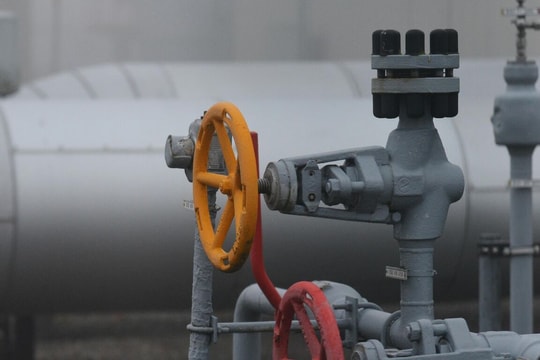Ukraine pledges not to attack Turkish Stream
Ukraine pledged not to attack Turkish Stream infrastructure and to start talks on gas transit soon, Hungary's foreign minister said.
.jpg)
According to RIA Novosti on February 11, Hungarian Foreign Minister Peter Szijjarto said in an interview with RIA Novosti that Ukraine had pledged not to attack the infrastructure of the Turkish Stream. This was also one of the guarantees Hungary received from the European Commission (EC) on energy security, and the EC itself pledged to "very quickly" start negotiations on gas transit through Ukraine.
“We were presented with a list of guarantees on three issues. First, Ukraine will not stop transit energy supplies through its territory. Second, they will not attack the Turkish Stream infrastructure. Third, negotiations on resuming gas transit through Ukraine will begin very quickly,” the Hungarian foreign minister said.
Earlier, Mr. Szijjarto stated that Budapest had received the necessary energy security guarantees from the EC, otherwise Hungary would refuse to extend the EU sanctions against Russia. According to the Hungarian Foreign Minister, the EC has assumed the obligation to protect gas and oil pipelines through which Russian raw materials are supplied to EU member states, and has asked Ukraine to provide guarantees to maintain oil supplies to the EU.
Ukraine has attempted to attack Turkish Stream infrastructure before. In January, Ukraine attempted to attack the Russkaya compressor station in Gai-Kodzor, Krasnodar region, with nine drones, according to the Russian Defense Ministry. The aim of the attack was to disrupt gas supplies through the Turkish Stream pipeline. All of the drones were shot down, and fragments from one of them caused minor damage to the gas metering station building and equipment.
The agreement to supply Russian gas to Europe via Ukraine expired on December 31, 2024. Kiev has ruled out extending the agreement even for purchases by third countries. As a result, Gazprom stopped pumping gas from 8:00 (Moscow time) on January 1, 2025, stressing that it has lost the technical and legal ability to supply gas for transit through the neighboring country.



.jpg)


